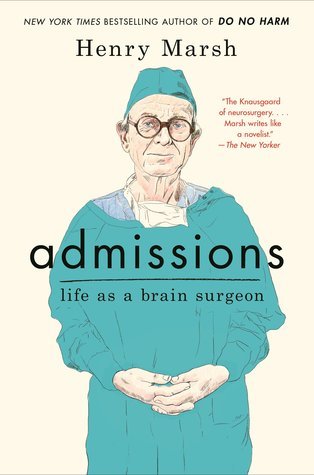More on this book
Community
Kindle Notes & Highlights
Apparently, in countries where so-called doctor-assisted suicide is legal many people, if they have a terminal illness, having initially expressed an interest in being able to die quickly, do not take up the option as the end approaches. Perhaps all that they wanted was the reassurance that if the end was to become particularly unpleasant, it could be brought to a quick conclusion and, in the event, their final days passed peacefully. But perhaps it was because, as death approached, they started to hope that they might yet still have a future. We develop what psychologists call ‘cognitive
...more
As we lie dying, many of us will keep a little fragment of hope alive in a corner of our minds, and only near the very end do we finally turn our face to the wall and give up the ghost.
Nevertheless, I have come to find a certain solace in the thought that my own nature, my I – this fragile, conscious self writing these words that seems to sail so uncertainly on the surface of an unfathomable, electrochemical sea into which it sinks every night when I sleep, the product of countless millions of years of evolution – is as great a mystery as the universe itself.
when there was a sudden low sound, almost like a breath of wind or a subterranean thought – a fleeting presence of something of immense size and distance.
When we learn a new skill the brain has to work hard – it is a consciously directed process requiring frequent repetition and the expenditure of energy. But once it is learnt, the skill – the motor and sensory coordination of muscles by the brain – becomes unconscious, fast and efficient. Only a small area of the brain is activated when the skill is exercised, although at the same time it has been shown, for instance, that professional pianists’ brains develop larger hand areas than the brains of amateur pianists. To learn is to restructure your brain.
Psychologists talk of the ‘endowment effect’ – that we are more concerned about losing things than gaining them. Once we own something, we are averse to losing it, even if we are offered something of greater value in exchange. The pebbles in the madmen’s pockets became more valuable than all the other pebbles in the hospital gardens simply by virtue of being owned.
Most of us – I certainly am, as was my father – are driven to collect things, but more possessions do not make us happier. It is a human urge that is rapidly degrading the planet: as the forests are felled, the landfill sites grow bigger and bigger and the atmosphere is filled with greenhouse gases. Progress, the novelist Ivan Klima once gloomily observed, is simply more movement and more rubbish. I think of the streets of Kathmandu.
When my brain dies, ‘I’ will die. ‘I’ am a transient electrochemical dance, made of myriad bits of information; and information, as the physicists tell us, is physical. What those myriad pieces of information, disassembled, will recombine to form after my death, there is no way of knowing. I had once hoped it would be oak leaves and wood. Perhaps now it will be walnut and apple in the cottage garden, if my children choose to scatter my ashes there. So there is no rational reason to fear death. How can you be afraid of nothing?


